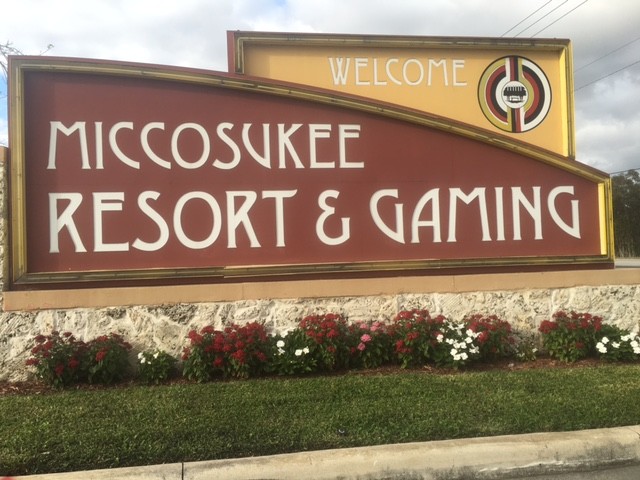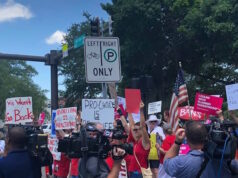
The Seminole Tribe runs seven of the eight Indian casinos in Florida. Their $2 billion-plus annual revenues rightfully draw attention as a Native American success story. Meanwhile, in the western reaches of Miami-Dade County, the Miccosukee Tribe of Florida quietly runs the eighth casino, serving locals plenty of slots, poker, and bingo.
The Miccosukee Tribe of Florida formed in the 1800s in the Everglades; in 1962 it was formally recognized by the U.S. government. In 1999 the tribe expanded their casino into what it is today, with the expansion including a new 302-room hotel.
The tribe seems uninterested in further expansion. It keeps out of the state’s political wars, and its communications outreach consists of buying advertisements and sponsorships, such as a contract with the Florida Marlins for large signage at the Marlins’ baseball stadium. Media attention may not be sought, but that doesn’t mean the tribe’s story isn’t interesting.
The tribe has always had a philosophy of detachment, which explains why they have only Class II games and poker. The Seminoles agreed in 2010 give the state more than $200 million per year for blackjack and for exclusive slot rights in Tampa and Immokalee. The Miccosukees have not pursued a similar arrangement, despite the possibility of higher revenues.
(For those who don’t know the difference, “Class II” is a category of games on Indian properties. Class II slot machines actually play an instantaneous game of bingo, but the results are represented by diamonds, cherries, etc., as a regular slot machine would – except if you look carefully, you’ll see the bingo card is on display as well.)
Federal law says that tribes can make payments to a state only if that state is offering benefits that are above and beyond what commercial and racetrack casinos can offer. But by not having an agreement with the state, the Miccosukees can keep 100 percent of their revenues.
How much money do they make? They don’t have to say. But setting their bingo and poker revenues aside – although they do have a nice bingo hall and some poker action, we can make an educated guess.
The four racetrack casinos in Miami-Dade last year averaged about $72 million in slot revenues, and they average fewer than 1,000 slots per casino. The Miccosukees have about 1,600 games, although Class II, so not exactly the same.
On average, South Florida racetrack casinos machines take in $182 per machine per day. Using that figure for the Miccosukees’ 1,600 machines comes out to $106 million per year. So let’s put their annual revenues at between $72 million and $106 million, not including bingo and poker revenues.
That amount of revenues has been enough to pay tribal members between $120,000 and $160,000 per person per year, although the IRS now claims that the tribe and its members owe more than $1 billion in taxes and penalties because of failure to pay income and other taxes. Among other consequences: the chairman of the tribe was ousted in November 2015.
But that’s a tribal leadership issue, separate from the casino operations. And my take is that operations are just fine as they are: the tribe is the owner of a profitable casino that serves a consistent local crowd, with little reason to change things – or even care about what everyone else thinks.
[vc_message message_box_style=”3d” message_box_color=”turquoise”]Nick Sortal, SouthFloridaGambling.com, SouthFloridaReporter.com, Mar. 28, 2016 [/vc_message]












Old habits die hard. They are the “Miami Marlins.” Haven’t been the Florida Marlins since 2011.